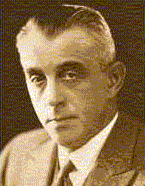Loser's Guide to Life
I just had time to read this part of a paragraph:
I infer that Arendt especially likes stories when their tellers seem to show two components of politicized aesthetic judgment: first, an eye for novelty, for what is unusual, perhaps unprecedented, freely done, creative, eruptive; and second, impartiality. Historians, novelists, and poets may show politicized aesthetic judgment (or aestheticized political judgment) in their stories or accounts. Melville, Dostoyevsky, and Joseph Conrad are among the fiction writers who impress Arendt because of their political judgment: because they were profoundly attentive to the newness of major political movements and tendencies. On the other hand, she praises, above all, Homer for his impartiality. He “chose to sing the deeds of the Trojans no less than those of the Achaeans, and to praise the glory of Achilles, the hero of his kinfolk. This had happened nowhere before; no other civilization, however splendid, had been able to look with equal eyes upon friend and foe, upon success and defeat....Homeric impartiality echoes through Greek history.”24 It inspired Herodotus, the father of Greek history, and is “the root of all so-called objectivity—this curious passion, unknown outside Western civilization, for intellectual integrity at any price.”25 What helped to make impartiality in the writer possible? I think that the answer is that a sense of beauty may overcome, if anything can, one's moral or practical-partisan concerns. Beauty may reside in the enemy, if only one is detached enough, has enough “disinterested delight,” to override one's interests or commitments. A sense of beauty may be more moral than a sense of justice.
— George Kateb, Patriotism and Other Mistakes (New Haven: 2008).
I have heard of Homer's impartiality often enough, of course, and this “outside of Western civilization” always makes for a crankified note. But it might be a valuable if difficult argument to make. As everyone knows, Dostoyevsky said that beauty would save the world. I've no idea what that means, but I assume it really refers to a kind of sensitivity. It's not the objectivity of someone removed from the gory details, but the opposite, someone able to accommodate more.
Labels: Paragraphs
